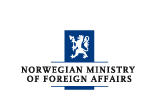Serbia – minority rights and national minority councils
TransConflict Serbia is pleased to announce the results of a survey, entitled ‘Minority Rights and National Minority Councils’, conducted as part of our project, ‘Promoting and strengthening the role of the Albanian and Bosniak National Minority Councils (NMCs)’, which is supported by the Royal Norwegian Ministry of Foreign Affairs.
Full survey results:
Albanian National Minority Council
A small majority of respondents (approximately 54%) estimate that the level of respect of Albanian minority is ‘low or poor’; with 24% evaluating it as ‘good’ and roughly 9% as ‘very good’. Although some 42% of those surveyed believe that nothing had changed with respect to the rights of Albanians in the last few years, over a quarter believed that the situation had changed for the better.
Amongst those who stated that the situation had changed for the worse, a large number pointed towards the levels of abject poverty, poor infrastructure, an absence of investment and a lack of equal employment opportunities, plus few rights to education in the Albanian language and the problem of unrecognised diplomas.
A significant number of respondents, however, also noted some positive changes, the most cited of which include the use of the Albanian language and national symbols; greater freedom of movement; increased integration of Albanians into public institutions; multi-ethnic jobs in the police and a lack of violence. In the view of the majority, the best way to integrate Albanians was through local economic development (68.30%) and multi-cultural education in schools (32.70%).
The vast majority of those surveyed (89.40%) were aware of the existence of the Albanian National Minority Council (ANMC); however, a third of all respondents (30.80%) did not know what its function and role was. Furthermore, although approximately 46% responded positively when asked whether, in their opinion, the ANMC protects and promotes the rights of Albanians, 37.50% were not sure, whilst 16.30% responded negatively.
Whilst some evaluated the establishment of an ANMC as a positive step towards integrating Albanians, they believe that it does not have sufficient influence. Of those demonstrating reserve towards the ANMC, 23.10% said that there was a lack of trust in the institution; 18.30% did not know in which way they could ask for assistance; whilst roughly 10% said that they did not have sufficient information about the ANMC.
When asked how they would protect their minority rights, roughly a third would refer to the police (34.60%), 27.90% to the ANMC and 21.20% to the municipal authorities. Only 12.50% and 6.70% would address civil society organizations and the media, respectively.
Were they to be better informed about the role, function and competencies of the ANMC, 76.90% of respondents said that they would relate to it more often, whilst only 8.70% said they would not.
To read the complete results from the survey on the Albanian National Minority Council, please click here.
Bosniak National Minority Council
Almost 50% of those surveyed are dissatisfied with the degree of respect for the rights of the Bosniak community in Serbia, with only 3.1% believing that these rights are very well respected.
More than half of the tested sample considers that respect for the rights of the Bosniak community has not changed – either in a positive or negative sense – in recent years and 16.9% considered that there was a change for the worse, particularly in terms of the discrimination faced (including with respect to employment in state institutions), divisions within the Islamic community and the failure to establish a National Minority Council.
Most respondents were not sure whether any measures had been taken in order to better integrate Bosniaks into society (42.5%), whilst some 39.5% believe that no action has been taken in this area. Half of the tested sample (48.2%) is familiar with cases of violations or denials of minority rights, while the other half (51.3%) say that they do not know of any such case.
With respect to methods for improving the integration of all communities, the respondents asserted that this can be achieved through multicultural education in schools (29.2%), local economic development (27.7%) and by organizing joint cultural activities (23.1%).
A vast majority of the respondents (81%) know that there is a Bosniak National Minority Council (BNMC); however, half of those are unaware of its function and purpose. In addition, almost 60% of the sample did not know – or is not sure if – the BNMC promotes advocacy and the protection of minority rights.
There is still a relatively large number of the Bosniak community (more than 50%) who, in case of need, would not – or are not sure that they would – turn to the BNMC to defend their rights; primarily because of a lack of information about the Council (22.1%). However, in the case of being better informed about its role and function, many respondents would be willing to approach the BNMC for assistance.
In the event that they require certain assistance, the largest percentage would ask for employment opportunities (41%) and legal advice (19%); reflecting the socio-economic realities facing Novi Pazar. In the sphere of education, 40.5% of the sample recognize that the most important issue the BNMC should deal with is amendments to the existing curriculum, particularly where it concerns history, arts and literature.
To read the complete results from the survey on the Bosniak National Minority Council, please click here.
For further information about the project, ‘Promoting and strengthening the role of the Albanian and Bosniak National Minority Councils (NMCs)’, please click here.



















Pingback : Centar za razvoj neprofitnog sektora » Manjinska prava i Nacionalni saveti nacionalnih manjina